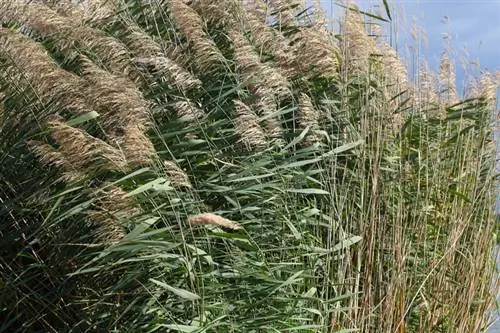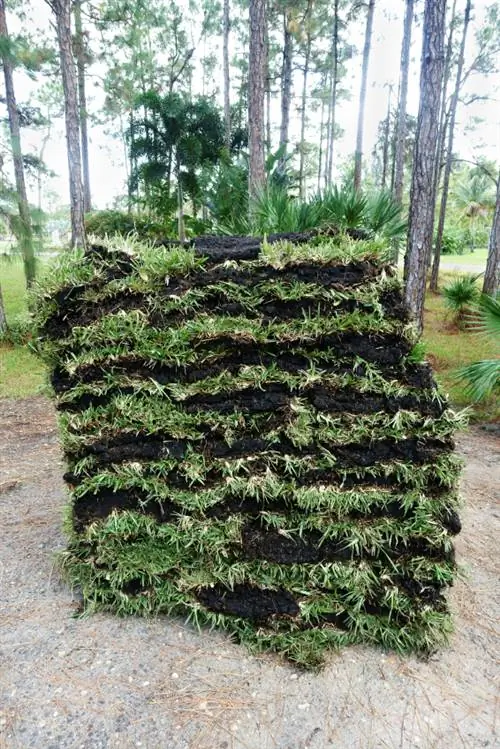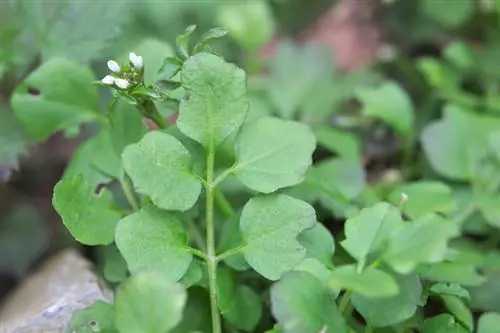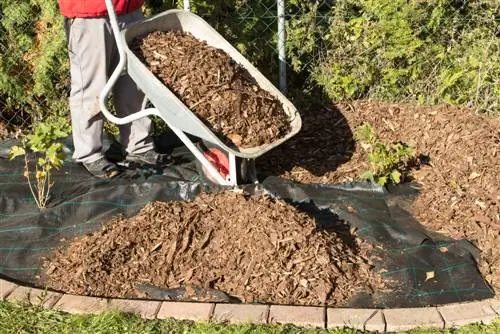- Author admin leonars@hobbygardeners.com.
- Public 2024-01-02 03:03.
- Last modified 2025-01-23 11:20.
Reeds are extremely overgrown and are therefore difficult to remove. In principle, there is only one sensible, environmentally friendly and long-term successful method of getting rid of reeds. Below we explain what it is and how you should definitely not destroy your reeds.
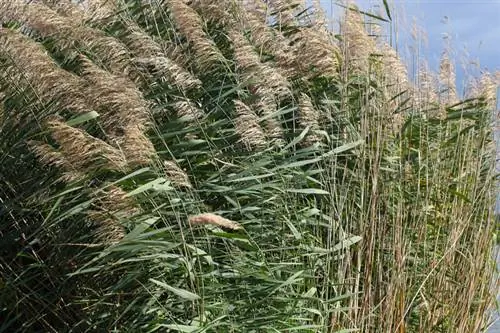
How to permanently remove reeds?
To remove reeds effectively and in an environmentally friendly manner, you should dig them up, removing all root residue. For tall reeds, this can require a depth of up to two meters. Alternatively, repeated mowing on the meadow can also be successful.
Removing reeds: digging up is the solution
Remove reeds by digging them up. It's very tiring, but it's worth the effort. The sooner you tackle the reeds, the better. If it is still small, the roots have not yet reached a significant depth and you can dig it out more easily.
If the reed has already grown tall, you may have to dig up to two meters deep to remove all root residue. First you should cut the foliage down to the ground. Then it's time to get to the value with a spade and pickaxe (€29.00 on Amazon). Dig both deep and wide, making sure to remove all roots. If the reeds or Chinese reeds are very tall, it may make sense to use an excavator. Get more information about digging up reeds here.
Repeated mowing can help
If you have reeds in the meadow, mowing them several times can also lead to lasting success. Find out more here.
Why you shouldn't use chemicals despite your best efforts
In forums and gardening sites you read again and again that you can get rid of reeds by eradicating them with Roundup or another weed killer. This is definitely not recommended. Firstly, especially with the robust reeds, it is possible that they will resist the herbicide and you will have poisoned your garden or pond for nothing. Secondly, studies have shown that Roundup is extremely harmful - to the environment and to you. Here are some of the side effects of Roundup on the human organism:
- The glyphosate it contains is carcinogenic.
- The “inactive substances” in Roundup affect fetal development and can lead to fetal malformations in pregnant women.
- It is associated with kidney and liver problems.
If you're thinking, well, but I don't drink it, then that's not entirely true. Due to the excessive use of Roundup, ever larger amounts of it end up in drinking water and thus become accessible to us. Of course, it also has the same effect on other mammals, such as cats and dogs, insects and other small animals. Other plants that grow nearby can also absorb toxins, which is why it is even more advisable to use chemicals when growing fruits and/or vegetables in your garden.

